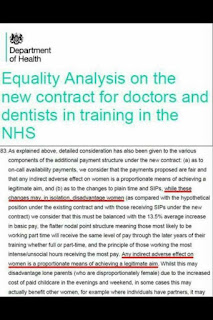At least it’s better than Boris and Trump…
As obscene as this sounds, I chose to sit Brexit out.
There was (still is) so much going on and enough think-pieces out there to make
even the most die-hard of Guardian readers slump into a political coma. No one
needed to hear my two pennies worth as well. I am of course, devastated, and
once again disappointed that fear and ignorance have won over 52% of the
country that I live in. From a gender perspective I am also devastated that we
are turning back the clock and will be left without the much-needed human
and women’s rights legislation the EU provides. I feel embarrassed and defeated
but as the dust starts to settle I decided to write about something I do feel
strongly about. As Wednesday evening Theresa May will be the next (unelected) Prime Minister of the United (the irony) Kingdom. She has reached
this position mostly by sitting back and letting all of the ‘leave’ politicians
and other candidates simultaneously self-combust in one way or another. Let’s
get things straight, she has IN NO WAY reached this point because of her merit,
gender or even less so a ‘feminist ticket.’ Conversely, across the pond, is
Hillary Clinton, a woman who has arguably marketed herself on the feminist
ticket and in some ways can be considered as such. She looks (god willing)
likely to become POTUS in 2017. With the new all-female Ghostbusters film out
this week some feminists could be led to believe that this is it, the turning
point we have all been waiting for. There will be women in the oval office and
number 10 and even the new Iron Man film will feature of 15 year old black
girl. Surely we can all go back to the kitchen now?
At a surface level, these are, of course,
achievements for the feminist movement. If only Clinton or particularly May had
any intention of making other women’s lives easier. Much like Thatcher it looks
like they will be breaking through the glass ceiling and taking the ladder up with
them! Whilst Clinton has done some laudable work for inequalities and
minorities in her own country it does not erase the fact that her campaign is
and will continue to be propped up by questionable Middle Eastern financing
including from Saudi Arabia where women are still yet to vote in their first
elections. Meanwhile, her foreign policy record suggests she will continue the
US tradition of reaping brutal havoc in the Middle East to the vast detriment
of women and girls. Meanwhile Theresa May is no feminist. She is ultimately
committed to the austerity model that has already torn apart rape crisis
services in this country and most substantially disadvantaged women and girls.
Furthermore her stint as Home Secretary has seen her show an incredible lack of
compassion for refugees and asylum seekers whilst she reigns over questionable
detention facilities such as Yarlswood where sexual assault and human rights
violations rumours are rife. Don’t get me wrong, that women have reached these
positions is progress but I don’t think we should be popping Champaign just
yet. Perhaps I am wrong and should be more optimistic but that’s not really
worked out so well for me in the last decade of British politics. Still, let’s
see what happens. The image above is taken from a Torygraph piece entitled "The Women are Coming" which ha a certain euphoric yet apocalyptical feel to it that I kind of like...







